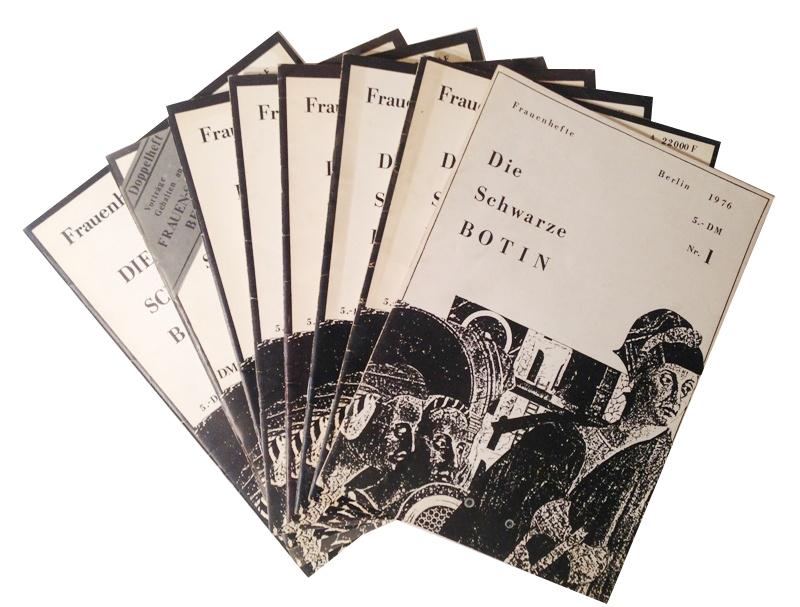At Eurozine, Katharina Lux excavates the history and militant publishing strategy of a forgotten magazine of New Left Feminism: Die Schwarze Botin (The Black Messenger), which published thirty-one issues between 1976 and 1987. As Lux explains, Die Schwarze Botin gathered together radical feminist writers and editors from across Europe, including the novelist and future Nobel Prize winner Elfriede Jelinek. The magazine took a skeptical stance towards certain affirmative aspects of the women’s movement, such as consciousness-raising, arguing instead that dismantling patriarchal society required ruthless negativity. Read an excerpt from Lux’s piece below.
Like [the magazines] Courage and Emma, the Schwarze Botin saw itself as part of the autonomous women’s movement. However, unlike Alice Schwarzer’s Emma, it did not aim to intervene in the ‘male press’ and address ‘all women’. Neither did Schwarze Botin want to be a newspaper ‘in which women could talk to other women’, as the editors of Courage wrote in their second issue. Instead, Goettle announced in the foreword to the first issue of Schwarze Botin’s that the editors ‘believe that the magazine itself is more crucial to the existence of the schwarze Botin [sic] than those who read it’. Rather than being a simple medium of communication, it was supposed to challenge readers: ‘Those who think that the Schwarze Botin must be free of contradictions and, because it alienates reality, is short on proof and evidence, must strip away old categories of reading and thinking.’ The radical reworking of categories of thought and feminist critique as critique of ideology: this was the agenda to which the magazine attempted to remain true until its last double issue in 1987.
Schwarze Botin’s intention to be an organ of feminism that refused to shy from critique of feminism did not necessarily make it an unusual for its time. From the outset, the women’s movement did not balk from critiquing the ideas, theories and organizational initiatives from within its own ranks. What did make it stand out, however, was the magazine’s means and mode of critique: Schwarze Botin’s critique of ideology combined provocative satire with an insistence on negativity.
Image via booklooker.de.
